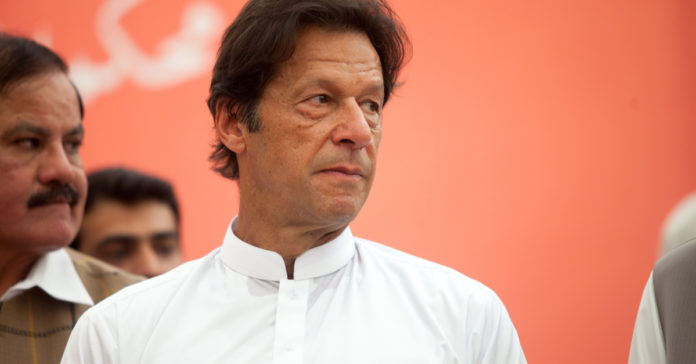Veteran Arab journalist Abdel Bari Atwan says Pakistan has taken a decisive shift away from Saudi Arabia and towards China, Turkey and Iran.
A small news item appeared on the business pages of Arab newspapers this week which shed light on a major strategic crisis that has been developing in the relationship between Saudi Arabia and long-time ally Pakistan.
It could mark a turning point in the close partnership that has lasted for more than seven decades (ever since Pakistan’s separation from India in the late 1940s) between the Kingdom that revels in its custodianship of Islam’s holiest shrines and the Islamic world’s only nuclear-armed power.
The news was that Pakistan repaid Saudi Arabia $1billion of a $3 billion loan it provided in late 2018. An earlier billion-dollar tranche was reimbursed in July, leaving a further billion which the Pakistani government intends to refund in January after securing alternative financing from China.
Different views were offered about why the Saudis demanded early repayment of the loan and simultaneously suspended a $3.2 billion credit facility for oil purchases by Pakistan.
Some attributed the move to Saudi Arabia’s financial difficulties: with its economy in recession due to the slump in oil sales it needs every dollar it can get, so it may have pressed Prime Minister Imran Khan – no great friend – to repay the money.
Others viewed it as politically-motivated, related to Saudi Arabia’s burgeoning strategic partnership with India and Pakistan’s growing rapprochement with Iran.
Subscribe to our newsletter and stay updated on the latest news and updates from around the Muslim world!
Deteriorating relations
Relations between the two countries have been worsening for some time.
The first big downturn came in 2015 when Pakistan refused to send troops to take part in the Saudi-led war on Yemen. This also signaled Pakistan’s rejection of Crown Prince Muhammad Bin-Salman’s idea of forming an “Islamic NATO” under Saudi leadership.
Tensions rose further over the ultra-sensitive issue of Kashmir. Islamabad was dismayed by Riyadh’s non-committal response to India’s decision to revoke the special autonomous status of Jammu and Kashmir. This was viewed as de facto Saudi approval for India’s annexation of the disputed province.

Saudi Arabia also blocked efforts to get the Organisation of Islamic Cooperation (which it effectively controls) to take action on Kashmir. Pakistani Foreign Minister Shah Mahmood Qureshi warned at the time that if Riyadh would not act on the issue, Islamabad would seek a meeting of Muslim-majority countries outside the OIC framework to provide it with backing.
This affront to Saudi Arabia’s Islamic leadership pretensions appears to have prompted its decision to recall the $3 billion loan.
The Pakistani army’s Chief of Staff, Gen. Qamar Javed Bajwa, tried to use his good offices to ease the mounting tension between the two countries. He flew to Riyadh for talks, but was denied a meeting with the Crown Prince and returned empty handed. This snub deeply offended both the Pakistani government and the traditionally pro-Saudi military establishment.
Iran
Saudi Arabia, for its part, is wary of Pakistan’s improved relationship with Iran, fearing among other things that it could involve the transfer of Pakistani nuclear technology.
It balked at Imran Khan’s agreement to attend the “alternative’ Islamic summit convened by Malaysian Prime Minister Mahathir Mohamad – in close coordination with Turkish President Recep Tayyip Erdogan — in December 2019 to discuss problems facing the Islamic world.
The Kingdom put enormous pressure on the Pakistani Prime Minister not to attend. He eventually succumbed, fearing the Saudis would cut off financial support or retaliate against the millions of Pakistani expatriate workers in the Gulf states whose remittances are crucial to sustaining the Pakistani economy.

Saudi Arabia, for its part, feels it no longer needs Pakistan. It invested billions of dollars in supporting the country’s economy — and its nuclear program – over many years. In return, it acquired political allegiance, military personnel and expertise that were vital for its armed forces, and a proxy nuclear deterrent against any potential military threat, such as from Iran.
But times have changed. Pakistan and Iran are on good terms, and Saudi Arabia has spearheaded the process of normalisation between Gulf states and Israel – a far more potent nuclear power, which shares its enmity towards Iran.
So the historic strategic alliance between Pakistan and Saudi Arabia and other Gulf is drawing to a close. Pakistan is looking elsewhere: to China, Turkey and Iran and their allies. These include forces deeply antagonistic to Saudi Arabia: Yemen’s Ansarullah (Houthi) movement, Lebanon’s Hezbollah, Iraq’s Hashd ash-Shaabi, and Qatar’s Al Jazeera TV channel, plus any other Muslim country or entity that might want to join.
A powerful Islamic coalition opposed to Saudi Arabia might take shape during the course of 2021. It could join forces with Russia and China in a bid to mount a global pushback against U.S. hegemony.
At a time of American retrenchment and deep domestic problems, some U.S. clients in the Middle East think Israel could serve as an alternative protector. That explains all their normalisation moves, but they will surely, eventually, be disappointed.
This article first appeared in Raialyoum.


















